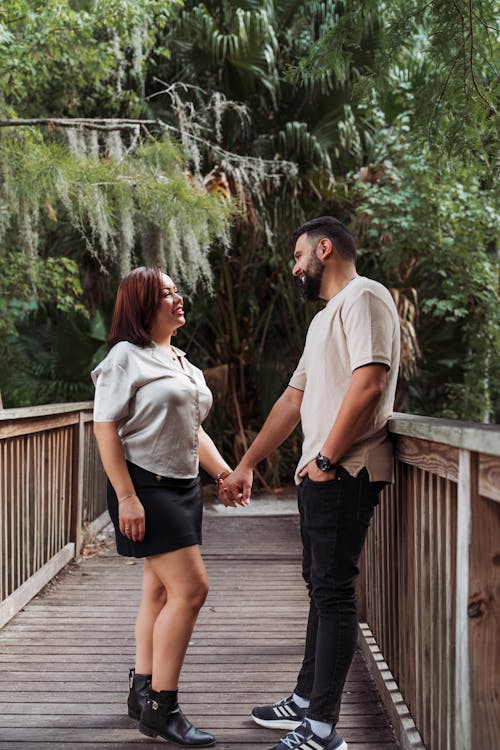Couples Therapy for Conflict Resolution: Healing Together, Not Apart
Category: Couples
Relationships are rarely conflict-free. Disagreements, unmet needs, hurt feelings, and communication breakdowns are part of the human experience.

Topic Of Discussion
Conflict becomes chronic, unresolved, or emotionally destructive, it can erode connection, trust, and intimacy. That’s where couples therapy for conflict resolution can help.
Relationships are rarely conflict-free. Disagreements, unmet needs, hurt feelings, and communication breakdowns are part of the human experience. But when conflict becomes chronic, unresolved, or emotionally destructive, it can erode connection, trust, and intimacy. That’s where couples therapy for conflict resolution can help.
At Tri-Star Counseling, we believe in creating a safe, compassionate space where partners can dig into the heart of their struggles — and build new paths forward.
Why Conflict Happens in Relationships
Conflict doesn’t always mean something is “wrong.” Instead, it often signals:
- Differing needs: What one partner needs (e.g. space, closeness, assurance) may look very different from what the other needs.
- Communication gaps: When words, tone, or timing get tangled, messages can get lost, misinterpreted, or dismissed.
- Emotional triggers and past wounds: Stress, past hurts, or unresolved trauma can intensify conflict in the present.
- Power struggles and control: When both partners want their voices heard but don’t trust the other to listen, conflict becomes a battlefield.
- Unmet expectations: When one or both partners feel disappointed, unappreciated, or taken for granted.
Over time, these patterns reinforce themselves. The same fights — often over small triggers — keep cropping up. One partner shuts down, the other escalates. Both feel misunderstood, unseen, and emotionally wounded. That kind of cycle pushes connection further away.
What Is Couples Therapy for Conflict Resolution?
“Couples therapy for conflict resolution” refers to a specialized approach within couples counseling that specifically targets howconflicts are handled — not just whatthe conflicts are about. Instead of patching issues superficially, therapists guide couples to:
- Reveal hidden patternsthat perpetuate conflict
- Improve listening and understandingskills
- Manage strong emotionslike fear, hurt, defensiveness
- Practice healthy repair strategieswhen conflict arises
- Rebuild safety, trust, and connection
At Tri-Star Counseling, our couples therapy approach is evidence-informed, collaborative, and personalized. We draw from communication-based models, Gottman-method principles, insight-oriented work, and emotional-regulation tools. We support you both — not siding with one, but helping both partners grow.
For many couples, just a few “aha” moments—like understanding a partner’s fear behind their criticism—can defuse recurring fights.
What to Expect in Couples Therapy at Tri-Star
If you decide to try couples therapy for conflict resolution with us, here’s how the journey often unfolds:
- Intake & Assessment
We begin by listening. We’ll ask each partner about your goals, your strengths, and your pain points. We’ll also explore your history, triggers, and relationship rhythms. - Goal-Setting Together
You and your therapist will co-create goals for improving how you fight, connect, and support. These might include communication goals, trust-building goals, or reducing reactivity. - Psychoeducation & Tools
We teach foundational skills: active listening, emotional expression, nonviolent communication, repair scripts, breathing/grounding techniques, and more. - Dialogue & Practice
In session, we facilitate structured conversations. We’ll help you slow down, step out of reactivity, and truly listen. We may “press pause” to teach a skill in the moment. - Integration & Homework
Between sessions, we’ll often suggest small, manageable practices you can do together—check-ins, gratitude statements, low-stakes conflict rehearsal, or dialogues. - Review & Adjust
As you progress, we revisit goals, notice what’s shifting, and adjust course. Therapy is rarely linear — some weeks you’ll feel leaps forward, other times incremental.
When Is It Time to Seek Couples Therapy?
You might consider couples therapy for conflict resolution if:
- You and your partner feel stuck in the same fights, over and over
- You dread disagreement because it always escalates
- One or both feels unheard, disrespected, or emotionally distant
- Trust has been damaged (infidelity, betrayal, secrecy)
- You don’t feel safe to share vulnerabilities
- You want to learn to fight well — with respect and repair — not just avoid fights altogether
Couples therapy isn’t a last resort; it can be a proactive investment in the health and longevity of your relationship.
How to Get Started with Tri-Star Counseling
At Tri-Star Counseling, we welcome couples ready to heal and grow. We offer in-person and telehealth counseling, so distance doesn’t have to keep you from seeking support.
If you’re considering couples therapy for conflict resolution:
- Reach out to our team via phone or message
- We’ll help you choose a therapist who fits your style
- You’ll schedule an intake session to see whether working together feels like a good fit
- From there, we’ll embark on a process of restoration, reconnection, and repair
Final Thoughts
Conflict isn’t the enemy. The way we respond to conflict — and whether we have support doing so — shapes the destiny of our relationships. Couples therapy for conflict resolution doesn’t guarantee you’ll never fight again. But it doesteach you how to fight well, with curiosity, empathy, safety, and repair.
The relational canvas is messy and colorful. Sometimes you’ll stay within the lines. Sometimes you’ll wander beyond. Therapy helps you color together.
If your relationship feels exhausted, distant, or full of tension — you don’t have to go it alone. At Tri-Star Counseling, we’re honored to partner with couples ready to reclaim connection, vulnerability, and hope. Schedule a consultation today andlet’sbegin that journey together.


